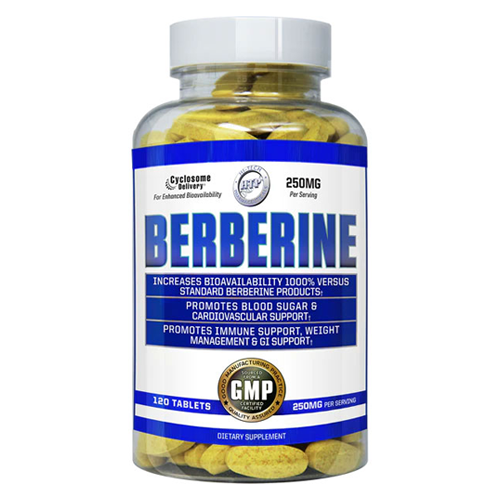Breast reduction surgery is a life-changing procedure for many women, helping them to alleviate physical discomfort and improve their self-confidence. However, it is not uncommon for women to wonder about the impact of breast reduction on their overall body shape, particularly in regards to belly fat. In this article, we will explore how breast reduction affects the body and provide you with valuable insights on how to lose belly fat after this procedure.

How breast reduction affects the body
Breast reduction surgery involves the removal of excess breast tissue and skin, resulting in smaller, more proportionate breasts. While the procedure focuses on the breasts, it can have secondary effects on other areas of the body, including the stomach. Some women may experience a redistribution of fat after breast reduction, with a possible increase in belly fat. This can be attributed to changes in hormone levels and the body’s natural response to surgery. It is important to note that not all women will experience this effect, as individual factors such as genetics and lifestyle play a significant role in determining body composition.
The role of diet in losing belly fat after breast reduction
When it comes to losing belly fat after breast reduction, adopting a healthy and balanced diet is paramount. Opting for a diet rich in nutrient-dense foods and low in processed sugars and saturated fats can help you shed excess weight and achieve a flat stomach. Focus on incorporating lean proteins, whole grains, fruits, and vegetables into your meals. These foods provide essential nutrients while keeping you feeling full and satisfied. Additionally, drinking plenty of water is vital for hydration and maintaining optimal bodily functions. Remember, losing belly fat is a gradual process, so be patient with yourself and stay committed to your dietary choices.
Incorporating exercise into your post-breast reduction routine
Exercise is an integral part of any weight loss journey, and after breast reduction surgery, it can be especially beneficial in toning your body and reducing belly fat. Engaging in both cardiovascular exercises and strength training can help you burn calories, increase your metabolism, and build lean muscle mass. Incorporate activities such as walking, jogging, swimming, or cycling into your routine for at least 30 minutes a day. Additionally, strength training exercises, such as planks, squats, and lunges, can target your core muscles and contribute to a flatter stomach. Remember to start slow and gradually increase the intensity and duration of your workouts to avoid overexertion.
Tips for losing belly fat after breast reduction
- Stay consistent: Consistency is key when it comes to losing belly fat. Stick to your diet and exercise routine, and don’t get discouraged by minor setbacks. Remember that sustainable progress takes time.
- Focus on overall body health: While your goal may be to lose belly fat, it is essential to prioritize your overall health. Make sure to get enough sleep, manage stress levels, and practice self-care.
- Monitor portion sizes: Pay attention to portion sizes to avoid overeating. Use smaller plates and make sure to include a balance of macronutrients in each meal.
Common mistakes to avoid when trying to lose belly fat after breast reduction
- Relying on spot reduction: It’s a common misconception that you can target fat loss in a specific area of the body. Unfortunately, spot reduction is not possible, so focus on overall weight loss and body toning.
- Skipping meals: Skipping meals can lead to overeating later in the day and disrupt your metabolism. Aim for regular, balanced meals throughout the day to keep your energy levels stable.
- Neglecting strength training: Cardiovascular exercises are important, but incorporating strength training into your routine is equally essential. Building muscle mass can help boost your metabolism and contribute to a toned stomach.
Lifestyle changes to support your goals
In addition to diet and exercise, certain lifestyle changes can positively impact your journey to a flat stomach after breast reduction. Prioritize stress management techniques such as meditation or yoga to reduce cortisol levels, which can contribute to belly fat. Get enough sleep to support your body’s recovery and hormonal balance. Surround yourself with a supportive network of friends and family who can encourage and motivate you throughout your journey.
Alternative methods for losing belly fat after breast reduction
While diet and exercise are the most effective ways to lose belly fat, some alternative methods can complement your efforts. These include non-invasive procedures such as CoolSculpting, which freezes and eliminates fat cells, and ultrasound therapy, which uses sound waves to target and break down fat cells. However, it is important to consult with a qualified healthcare professional before considering any alternative methods to ensure they are safe and suitable for you.
Personal stories and success stories
Every individual’s journey to a flat stomach after breast reduction is unique, and personal stories and success stories can provide inspiration and motivation. Hearing about the experiences of others who have successfully lost belly fat after breast reduction can give you valuable insights and tips. Join online forums or support groups dedicated to breast reduction or weight loss, where you can connect with individuals who have gone through similar experiences and share your own achievements.
Obesity and Belly fat
The prevalence of obesity has been on the rise globally, with a significant impact on public health. One area of concern is belly fat, also known as visceral fat, which is particularly dangerous due to its association with various health risks, including cardiovascular disease and diabetes. As a result, many individuals are turning to belly fat supplements in their quest for weight loss. However, the efficacy and safety of these supplements remain controversial. In this article, we will delve into the findings of clinical trials investigating the effects of belly fat supplements on weight loss and body fat composition.
Conjugated Linoleic Acid (CLA)
One of the most commonly studied belly fat supplements is conjugated linoleic acid (CLA). CLA is a naturally occurring fatty acid found in beef and dairy products. Animal studies have shown promising results, including reductions in body fat mass and increased insulin sensitivity. However, the data on CLA’s effects in humans are limited and inconsistent [^1].
A Chinese study conducted a randomized, double-blind, placebo-controlled trial to examine the effects of CLA on overweight and obese individuals. The participants received 1.7 grams of CLA or a placebo for 12 weeks. The results showed significant reductions in body weight, body mass index (BMI), total fat mass, fat percentage, subcutaneous fat mass, and waist-to-hip ratio in the CLA group [^2].
While these findings are encouraging, it is important to note that the changes in cholesterol levels and fasting glucose were not significantly different from the baseline values. Further research is needed to determine the long-term effects and safety of CLA supplementation for belly fat reduction.
Garcinia Cambogia
Garcinia cambogia, a tropical fruit, has gained popularity as a weight loss supplement due to its active ingredient, hydroxycitric acid (HCA). HCA is believed to inhibit lipogenesis and suppress appetite. However, the evidence for its effectiveness in reducing belly fat is limited and inconclusive.
In a randomized, double-blind, placebo-controlled trial, overweight and obese individuals received 1.5 grams of HCA or a placebo daily for 12 weeks. The results showed no significant differences in body weight or body composition between the two groups [^3]. These findings suggest that Garcinia cambogia may not be an effective supplement for belly fat reduction.
Chitosan
Chitosan, derived from the shells of crustaceans, has been proposed as a weight loss supplement due to its ability to bind dietary fats. Several studies have investigated its effects on body composition, with mixed results.
A study conducted on Chinese subjects examined the effects of chitosan supplementation on overweight and obese individuals. The participants received chitosan or a placebo for 12 weeks. The results showed significant reductions in body weight, BMI, total fat mass, fat percentage, subcutaneous fat mass, and waist-to-hip ratio in the chitosan group [^4].
It is important to note that some participants reported gastrointestinal side effects, such as constipation and bloating. Further research is needed to determine the long-term effects and safety of chitosan supplementation for belly fat reduction.
Pyruvate
Pyruvate, a byproduct of glucose metabolism, has been suggested to promote weight loss by increasing fat utilization and resting metabolic rate. However, the evidence for its efficacy in reducing belly fat is limited and conflicting.
A study examined the effects of pyruvate supplementation on overweight and obese individuals. The participants received pyruvate or a placebo for six weeks. The results showed significant reductions in body weight, BMI, and subcutaneous fat mass in the pyruvate group [^5].
It is worth noting that some participants experienced gastrointestinal upset as a side effect of pyruvate supplementation. Further research is needed to determine the long-term effects and safety of pyruvate supplementation for belly fat reduction.
Irvingia Gabonensis
Irvingia gabonensis, also known as African mango, has been purported to aid in weight loss by inhibiting adipogenesis and increasing adiponectin levels. However, the evidence for its effectiveness in reducing belly fat is limited and inconclusive.
A study conducted on Chinese subjects investigated the effects of Irvingia gabonensis supplementation on overweight and obese individuals. The participants received Irvingia gabonensis or a placebo for 12 weeks. The results showed significant reductions in body weight, BMI, total fat mass, fat percentage, subcutaneous fat mass, and waist-to-hip ratio in the Irvingia gabonensis group.
Further research is needed to determine the long-term effects and safety of Irvingia gabonensis supplementation for belly fat reduction.
Chia Seed
Chia seed, rich in omega-3 fatty acids, alpha-linoleic acid, and fiber, has been suggested to aid in weight loss. However, the evidence for its efficacy in reducing belly fat is limited and inconclusive.
A study examined the effects of chia seed supplementation on overweight and obese individuals. The participants received chia seed or a placebo for 12 weeks. The results showed no significant differences in body weight or body composition between the two groups.
Further research is needed to determine the effects of chia seed supplementation on belly fat reduction.
Belly Fat Supplements
Belly fat supplements have gained popularity as individuals seek effective solutions for weight loss and body fat reduction. While some studies have shown promising results, the overall evidence is limited and inconsistent. CLA, chitosan, pyruvate, Irvingia gabonensis, and chia seed have been investigated in clinical trials, but more research is needed to determine their long-term effects and safety.
It is important to note that these supplements should not be seen as a magic solution for belly fat reduction. A healthy lifestyle, including a balanced diet and regular exercise, remains the cornerstone of weight loss and body fat management. Consulting with healthcare professionals before starting any new supplement regimen is always recommended.
Right Weight Loss Supplement
Weight loss is a common goal for many individuals, and finding the right supplement to support this journey can be overwhelming. One compound that has gained attention in recent years is berberine. Derived from various plants such as Rhizoma Coptidis and Berberis vulgaris, berberine has shown tremendous potential as a weight loss supplement. In this comprehensive guide, we will delve into the benefits, mechanisms of action, and clinical evidence of berberine capsules, while exploring how it compares to other popular weight loss supplements such as Far Beyond Driven, Green Stinger, Hydroxytrol, and EPH 100.
Section 1: Understanding Berberine
Berberine is a natural alkaloid compound that has been used for centuries in traditional medicine, particularly in Ayurvedic and Chinese medicinal systems. It can be found in plants like Hydrastis canadensis (goldenseal), Coptis chinensis (Coptis or goldenthread), and Berberis aquifolium (Oregon grape). The compound has a long history of medicinal use due to its potent antimicrobial, antiprotozoal, and antidiarrheal properties. (8)
Section 2: Mechanisms of Action
Berberine exerts its effects on weight loss through various mechanisms of action. One key mechanism is its ability to activate AMP-activated protein kinase (AMPK), which plays a crucial role in regulating energy metabolism. Activation of AMPK leads to increased glucose uptake, improved insulin sensitivity, and enhanced fat oxidation. Additionally, berberine supplement inhibits mitochondrial function, stimulates glycolysis, and modulates lipid metabolism. (9)
Section 3: The Role of Berberine in Obesity Management
Obesity is a complex condition that involves excessive body fat accumulation and is associated with numerous health complications. Berberine has shown promising results in the management of obesity. In preclinical models, berberine has been found to decrease the size and number of lipid droplets in adipocytes, inhibit adipocyte differentiation, and reduce the expression of genes involved in adipogenesis. These effects contribute to a decrease in body weight and fat mass. (10)
Section 4: Berberine and Glucose Regulation
One of the key factors in weight loss is maintaining healthy blood glucose levels. Berberine has been extensively studied for its ability to regulate glucose metabolism. It has been shown to reduce fasting blood glucose levels, improve insulin sensitivity, and decrease insulin resistance. Berberine achieves these effects by inhibiting hepatic gluconeogenesis, enhancing glucose uptake in skeletal muscle, and promoting glucose metabolism. (11)
Section 5: Berberine and Lipid Profile Improvement
Elevated lipid levels, such as triglycerides and cholesterol, are common in individuals with obesity. Berberine has been found to have a beneficial impact on lipid metabolism, leading to improvements in lipid profiles. Studies have shown that berberine reduces total cholesterol, triglyceride, and LDL cholesterol levels, while increasing HDL cholesterol levels. These effects are attributed to berberine’s ability to enhance the capture and disposal of cholesterol in the liver, reduce cholesterol absorption in the intestines, and stimulate cholesterol excretion.
Section 6: Clinical Evidence and Efficacy
While preclinical studies have provided valuable insights into the mechanisms of berberine, clinical trials are essential to evaluate its efficacy in humans. Several clinical studies have shown promising results in the use of berberine for weight loss and metabolic disorders. In a study involving newly diagnosed type 2 diabetic patients, berberine was found to improve insulin sensitivity and lower blood insulin levels. Another study demonstrated that berberine supplementation significantly reduced body weight, waist circumference, and body mass index (BMI) in overweight individuals.
Section 7: Dosage and Administration
The appropriate dosage of berberine may vary depending on the individual and the specific health condition being targeted. It is important to consult with a healthcare professional before starting any supplementation regimen. Generally, the recommended dosage of berberine capsules is around 500 mg per day, divided into two to three doses. However, higher dosages may be necessary in certain cases, such as the management of diabetes or cardiovascular conditions. It is crucial to follow the instructions provided by the manufacturer or healthcare professional to ensure safe and effective use.
Section 8: Potential Side Effects and Safety Concerns
While berberine is generally considered safe for most individuals when taken at recommended dosages, it is essential to be aware of potential side effects and safety concerns. The most commonly reported side effects include gastrointestinal symptoms such as diarrhea, constipation, and abdominal pain. Berberine may also interact with certain medications, including those metabolized by the cytochrome P450 enzymes. It is important to discuss any existing medical conditions and medications with a healthcare professional before starting berberine supplementation.
Section 9: Berberine as a Complementary Approach
Berberine should be viewed as a complementary approach to a healthy lifestyle, including a balanced diet and regular exercise. While berberine has demonstrated significant potential as a weight loss supplement, it is important to remember that sustainable weight loss requires a comprehensive approach. Incorporating healthy habits, such as regular physical activity and portion control, alongside berberine supplementation can lead to more successful and long-lasting weight loss results.
Section 10: Weight Loss Supplement
In conclusion, berberine has emerged as a promising weight loss supplement with numerous health benefits. Its ability to regulate glucose and lipid metabolism, enhance insulin sensitivity, and promote fat oxidation make it an attractive option for individuals seeking effective weight management solutions. However, it is crucial to consult with a healthcare professional before starting berberine supplementation, especially for individuals with pre-existing medical conditions or those taking medications. By incorporating berberine into a comprehensive weight loss plan, individuals can maximize its potential and achieve their weight loss goals.
Conclusion: Celebrating your journey to a flat stomach after breast reduction
Losing belly fat after breast reduction is possible with the right approach and commitment. By understanding the relationship between breast reduction and body composition, adopting a healthy diet and exercise routine, avoiding common mistakes, and making lifestyle changes, you can achieve a flat stomach and feel confident in your post-surgery body. Remember to be patient, stay consistent, and celebrate every milestone along the way. Your journey to a flat stomach after breast reduction is a testament to your strength and determination.




